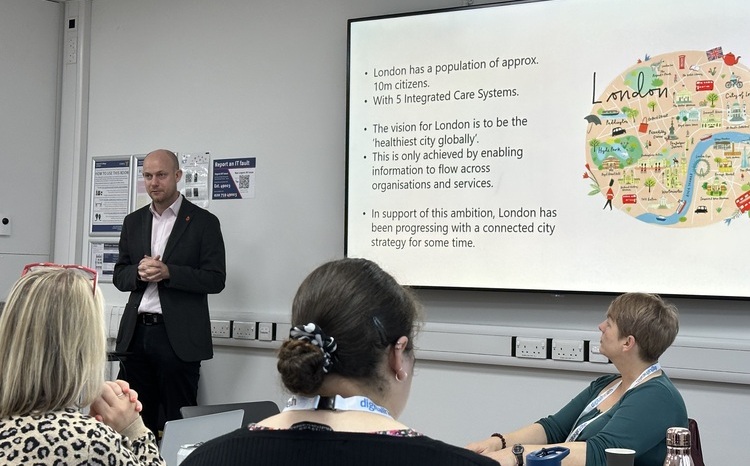Health IT Leaders Welcome Wanless
- 18 April 2002
From being strictly a minority interest healthcare Information and Communication technology (ICT) has suddenly moved to centre stage in British politics. According to leading Health IT figures the challenge is to rapidly deliver systems that provide real benefits to patients.
Yesterday’s Budget saw the Government stake its future on delivering dramatic improvements in the NHS, and the Treasury-commissioned Wanless Report published just ahead of the Budget makes clear that ICT will be vital to achieving this goal.
As the ex-chief executive of NatWest Group Derek Wanless probably appreciates better than most that if you run an information industry you need to invest heavily in IT to deliver significant productivity gains and improvements to customers.
The Review found that the NHS invests less in IT than any other sector of the UK examined, approximately 1.5% of its revenues. Wanless calls for this figure to be doubled.
Ellen Pirie, health industry manager at Microsoft, told E-Health Media that investments in staff and buildings, have “significant lead in times”, and one way to achieve early benefits may be to invest in IT. "They’ve twigged that a good part of the answer may be IT, which could deliver significant improvements within three years."
The Wanless review also calls for budgets for IT to be protected and for stringent standards to be set from the centre to ensure that systems across the UK are fully compatible with one another.
Dr Richard Gibbs, head of the NHS chief executive’s IT forum told E-Health Media he welcomed the Wanless Review and that it was consistent with what chief executives had been saying.
"Chief executives believe that IT is so crucial to the NHS Plan and that the current funding mechanism doesn’t work, so funding does need to be ring-fenced".
Dr Gibbs also stressed that a larger degree central national control was needed over major investments, such as electronic record systems, and national standards. "It is entirely wasteful for each trust to reinvent the wheel".
Wanless places great emphasis on the need to set common standards for ICT and ensuring system are interoperable. According to Pirie achieving interoperability will be absolutely essential. She said some core systems, particularly elements of infrastructure, needed to be common "but on more complex applications it’s the standards that become more important".
Pirie argued that the key to rapid implementation of systems will be a national information infrastructure that contains the core common applications that every local system will require, such as the ability to find a standard patient number, and mechanisms for consent, permissions and even patient authentication. "If you look at highly fragmented systems in the NHS and you need to make a large leap forward it becomes an obvious way to move forward".
This view is backed by Peter Dyke, head of market development for BT Health, who said infrastructure was the first priority in getting NHS organisations e-enabled
Dyke stressed the scale of the challenge ahead for both suppliers and NHS IT specialists. "We’re effectively talking about doubling the capacity in ICT. You can’t just throw money at this you have to make sure programmes are well managed".
He also stressed that success would not just depend on buying systems but on delivering benefits to the front line. "The responsibility for delivering benefits lies with first line NHS service managers".
At HC2002 in Harrogate last month Sir John Pattison made clear that time was of the essence and that in return for investment the Government expects IT to deliver significant results by 2005.
According to Dr Gibbs the programme being set out is a very complex mix of change, technology, culture and people that will require clear leadership and much better partnerships with suppliers. "What we are actually seeking is to allow people to work in quite different ways and treat people in different ways."
He predicted that it will take three years to deliver many of the anticipated benefits to patients: "To get benefits from electronic records on the scale we are talking about will take three years, what we must guard against is the notion that within six months the whole thing will change."
Although timescales are tight and the challenge is big Pirie stressed that between all the resources available in the industry a big impact can be made, but added that delays must be avoided. "Its doable but we do need to be getting on with it".
However she emphasised that duplication of effort must be avoided and that in addition to standards for interoperability it will be imperative to clearly define the infrastructure and system architecture at the outset, and get systems integration right first tine rather have to repeatedly go back and do it in piecemeal fashion. "It does come down to planning and having a clear logistical view," said Pirie.
"If they want to have a national health service it has to be supported by national IT. What systems come out are not so important as functionality and that has to be defined nationally."




